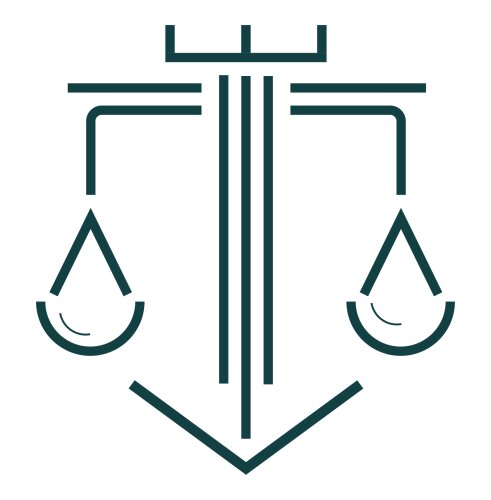Best Restructuring & Insolvency Lawyers in Jos
Share your needs with us, get contacted by law firms.
Free. Takes 2 min.
List of the best lawyers in Jos, Nigeria
About Restructuring & Insolvency Law in Jos, Nigeria
Restructuring and insolvency law in Jos, Nigeria refers to the rules and legal processes that apply when companies or individuals are facing financial difficulties and are unable to pay their debts. Jos is the capital of Plateau State and, like other Nigerian cities, follows federal laws as well as any relevant state and local regulations. The primary purpose of restructuring is to help financially distressed businesses reorganize their affairs in a way that allows them to survive, preserve jobs, and repay creditors where possible. Insolvency, on the other hand, focuses on the process of resolving the rights of creditors and debtors when debts cannot be repaid, often resulting in asset sales or liquidations. Nigerian insolvency and restructuring law is influenced by federal legislation, such as the Companies and Allied Matters Act (CAMA) 2020, and also by rules of courts with jurisdiction in Jos.
Why You May Need a Lawyer
Legal assistance is essential in restructuring and insolvency matters due to the complexity of laws and procedures involved. Here are common situations where you may require a lawyer in Jos:
- You own or manage a business struggling to meet its financial obligations and need to consider restructuring debts or negotiating with creditors.
- You are an individual being threatened with bankruptcy and want to understand your rights, liabilities, and options.
- You are a creditor whose customers or business partners are in financial distress and you want to protect your interests.
- You are an investor or stakeholder in a company that is considering or undergoing insolvency proceedings.
- You need guidance on the legal requirements for appointing a receiver, liquidator, or administrator.
- You are facing claims from trustees, liquidators, or other parties due to alleged wrongful trading, preferences, or fraudulent transfers.
- You want to explore out-of-court arrangements to resolve financial difficulties.
A lawyer can provide tailored advice, represent your interests in court or negotiations, ensure compliance with statutory requirements, and help you avoid unintended legal consequences.
Local Laws Overview
In Jos, the framework for restructuring and insolvency is primarily set by federal statutes and regulations. The key law is the Companies and Allied Matters Act (CAMA) 2020, which governs corporate insolvency, restructuring, liquidation, receivership, and related matters. The Bankruptcy Act and various provisions in the Nigerian Constitution and rules of court also apply, especially for individual insolvencies.
Some of the key aspects relevant to Jos include:
- Receivership and Administration: Under CAMA, creditors can appoint a receiver or manager to take control of company assets and affairs to repay debts.
- Liquidation: If a business cannot be rescued, it may be wound up through a court-supervised process, with assets sold to pay creditors.
- Restructuring and Arrangements: Debt restructuring can be achieved through formal Court-approved schemes or informal out-of-court agreements.
- Personal Bankruptcy: Individuals may be declared bankrupt and their assets managed for the benefit of creditors under the Bankruptcy Act.
- Court Jurisdiction: The Federal High Court has primary jurisdiction over corporate insolvency matters. High Courts of Plateau State may also have roles in certain aspects of insolvency, especially concerning individuals.
- Cross-Border Insolvency: CAMA 2020 now includes provisions for cooperation with foreign courts and insolvency practitioners, which may be relevant for businesses with operations or creditors abroad.
Local rules in Jos are largely shaped by these federal laws, but the application and enforcement may vary depending on court practices and local business community standards.
Frequently Asked Questions
What is the difference between restructuring and insolvency?
Restructuring usually involves reorganizing a business's operations, debts, or structure to enable survival and growth. Insolvency is a condition where a person or company cannot pay debts as they become due and may lead to formal bankruptcy or liquidation proceedings.
When should I consider initiating insolvency proceedings in Jos?
Consider insolvency proceedings if debts have become unmanageable, creditors are threatening legal action, or all restructuring attempts have failed. Prompt legal advice can clarify your position and available options.
Can individuals, not just companies, become insolvent in Jos?
Yes, individuals in Jos can be declared bankrupt under the Bankruptcy Act. This involves a court process and may result in the sale of personal assets to satisfy debts.
What legal process is involved in liquidating a company in Jos?
Company liquidation involves filing a petition with the Federal High Court. If granted, a liquidator is appointed to sell off the company’s assets, settle claims, and distribute any remaining funds as per legal priorities.
Are there alternatives to court-supervised insolvency in Jos?
Yes, there are alternatives such as out-of-court negotiations, private arrangements with creditors, voluntary arrangements, or restructuring plans, which can sometimes be more cost-effective and flexible.
What protections do creditors have during insolvency?
Creditors have rights to be notified of insolvency proceedings, submit claims, attend meetings, and receive payments in a specific legal order after assets are sold.
Can directors or business owners face personal liability?
In some situations, such as fraudulent trading, wrongful trading, or misuse of company assets, directors or owners can face personal liability for some or all company debts.
How long do restructuring or insolvency proceedings usually take?
Timelines vary widely depending on the complexity of the case, the number of creditors, and the court's schedule. Simple proceedings could take months, while complex cases may last several years.
Can foreign companies access insolvency processes in Jos?
Foreign companies operating in Jos or owning assets in Nigeria are subject to Nigerian insolvency laws. CAMA 2020 provides mechanisms for cooperation with foreign insolvency proceedings.
What are my first steps if I receive a demand letter or winding-up petition?
You should seek immediate legal advice to understand your options, respond appropriately, and protect your rights. Delay can worsen your position and limit available remedies.
Additional Resources
If you are looking for more information or guidance in Jos, Nigeria, the following resources may be helpful:
- Corporate Affairs Commission (CAC): Responsible for company registration, filings, and some aspects of insolvency-related documentation.
- Federal High Court Jos Division: Handles insolvency, liquidation, and bankruptcy cases for companies and can provide procedural information.
- Plateau State Ministry of Commerce and Industry: Offers business support which can be useful for businesses seeking early restructuring advice.
- Nigerian Bar Association, Jos Branch: Useful for finding accredited lawyers experienced in insolvency and restructuring matters.
- Financial Institutions and Regulatory Agencies: Banks and financial institutions can provide information on debt restructuring and settlement options.
Next Steps
If you are facing financial distress or need advice about restructuring and insolvency in Jos, Nigeria, here are your recommended next steps:
- Assess your current financial situation and gather all relevant documents, including statements of assets, liabilities, and correspondence from creditors.
- Contact a qualified lawyer in Jos who specializes in restructuring and insolvency for a confidential consultation and legal assessment.
- If representing a business, consider discussing preliminary restructuring options with accountants or financial advisors before taking formal steps.
- If you have received any court documents, petitions, or demand letters, respond promptly and through your lawyer to preserve your rights and options.
- Stay informed about your rights and obligations throughout the process, and keep in close contact with your legal advisor until your matter is resolved.
Early and informed action is often key to mitigating losses, maximizing recoveries, or securing a fresh financial start. Legal professionals in Jos can guide you through each stage and advocate for your best interests.
Lawzana helps you find the best lawyers and law firms in Jos through a curated and pre-screened list of qualified legal professionals. Our platform offers rankings and detailed profiles of attorneys and law firms, allowing you to compare based on practice areas, including Restructuring & Insolvency, experience, and client feedback.
Each profile includes a description of the firm's areas of practice, client reviews, team members and partners, year of establishment, spoken languages, office locations, contact information, social media presence, and any published articles or resources. Most firms on our platform speak English and are experienced in both local and international legal matters.
Get a quote from top-rated law firms in Jos, Nigeria — quickly, securely, and without unnecessary hassle.
Disclaimer:
The information provided on this page is for general informational purposes only and does not constitute legal advice. While we strive to ensure the accuracy and relevance of the content, legal information may change over time, and interpretations of the law can vary. You should always consult with a qualified legal professional for advice specific to your situation.
We disclaim all liability for actions taken or not taken based on the content of this page. If you believe any information is incorrect or outdated, please contact us, and we will review and update it where appropriate.










